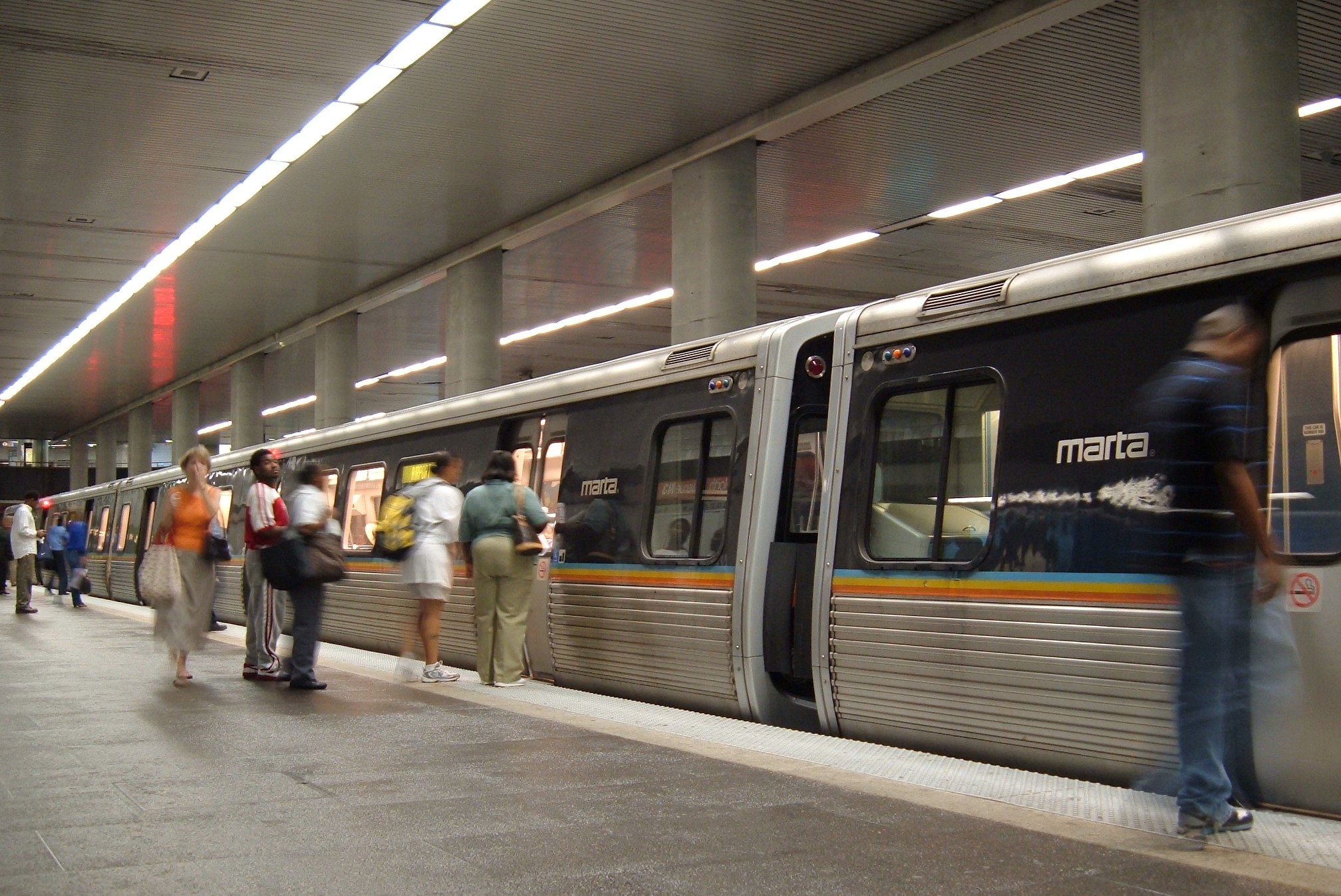Kennesaw State’s close proximity to Atlanta is part of the heart and soul of campus. Students commute constantly to the city for work, internships, events, food, friends, home and more — and yet the only method of convenient transportation is to drive one’s own car.
KSU should host its own metropolitan bus and rail station to aid a student’s commute in a more direct manner.
Expanding the availability of Atlanta’s mass transit network to KSU would financially benefit students commuting to and from Atlanta and make a large impact on efforts to reduce and reverse the effects of climate change.
The already-existing and limited public transit system, MARTA, extends to 38 rail stations and 110 bus lines within the immediate metropolitan area. The vast suburbs that extend outside of the perimeter do not have the same conveniences, and this needs to change.
According to an estimation by Google Maps, in order for a student to commute from KSU’s Kennesaw campus to the central downtown MARTA station in “Five Points” using exclusively public transportation, they would have an almost two-hour commute time in addition to changing their mode of transportation at least three times.
With KSU being so conveniently close to Atlanta, it seems silly that a more efficient method of commuting is nonexistent. The extension of Atlanta’s public transportation system would provide a much less expensive resource for those who can use it to their advantage.
In its cost of attendance estimation, KSU states transportation costs to be $2,874 per semester. Meanwhile, with the university discount, a monthly MARTA pass costs $68.50 per month, which would be a maximum of $342.50 per semester, per student. Therefore, if MARTA provided a line extending to KSU, a student’s transportation costs have the potential to be reduced exponentially.
Junior accounting major Blaise Love spent last year commuting from an Atlanta neighborhood to KSU three days a week.
“I would have loved [MARTA]! My commutes were almost an hour in each direction during rush hour,” Love said. “I would have much rather spent that time doing homework or something else while productive riding on public transportation.”
An extension of the public transportation system up to KSU would also help cut down on gas emissions from all the students on the road.
KSU acknowledges on its Clean Commute webpage that 76 percent of KSU’s greenhouse gas emissions can be traced directly to commuting. This webpage also details strides the university has already taken to reduce its carbon footprint, including the Big Owl Bus and financial incentives offered to professors if they make their commutes more eco-friendly.
While these services are a step in the right direction, they do not go as far as they need to. The tipping point for a more sustainable campus would be extending Atlanta’s MARTA reach student housing at KSU.
By expanding a MARTA rail line from Atlanta to KSU, students would have an easy and cost-effective way to make a small impact every day. This extension would not only allow students the opportunity to potentially save thousands of dollars, but also to reduce their own — and their university’s — carbon footprint.


